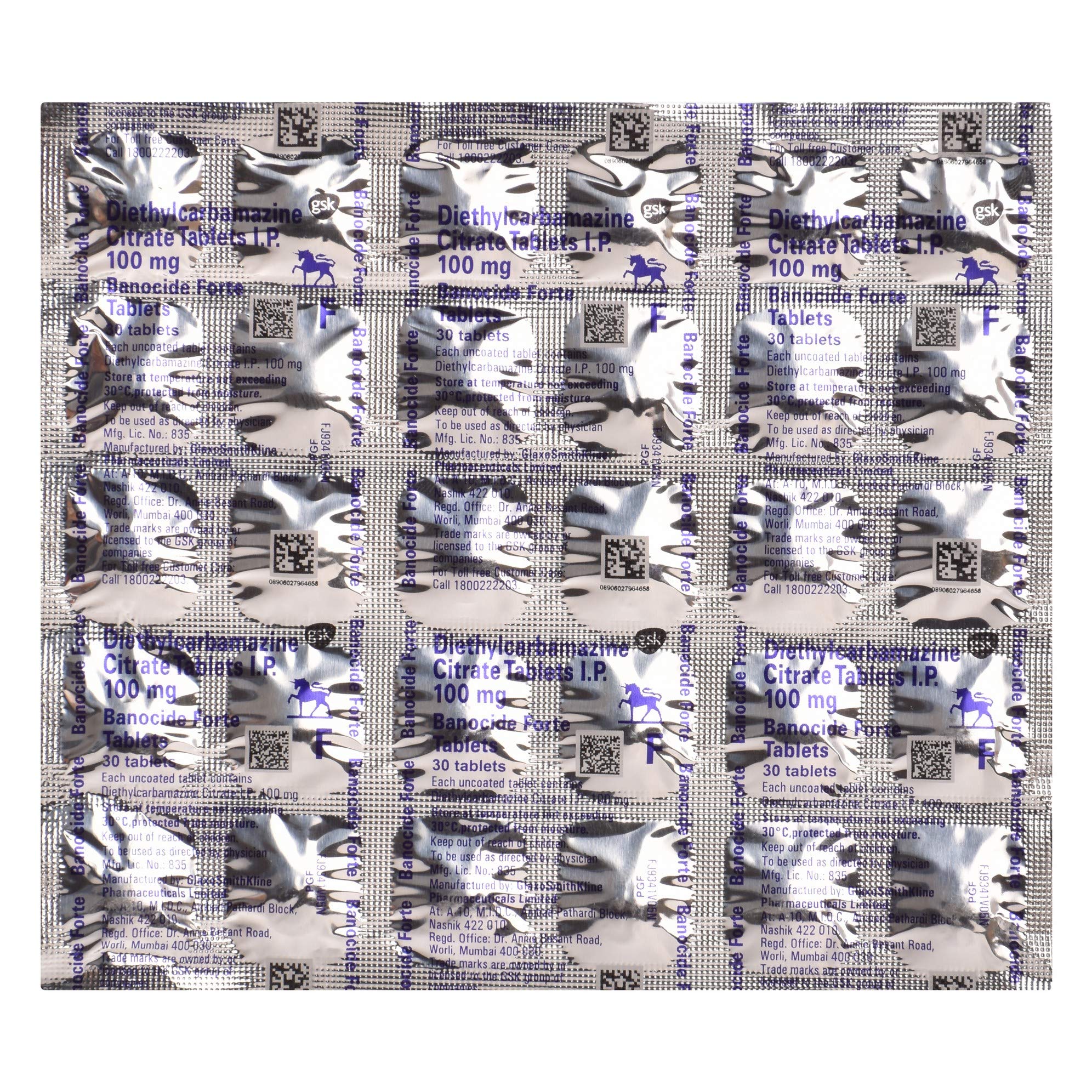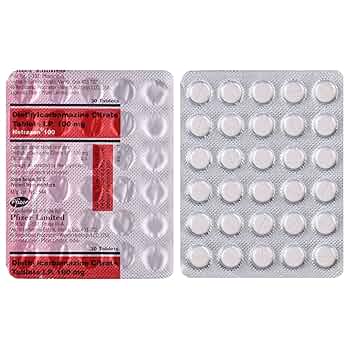🦠 Diethylcarbamazine 100mg Tablet: A Targeted Weapon Against Parasitic Infections
Overview
Diethylcarbamazine (DEC) 100mg tablet is an antiparasitic medication primarily used in the treatment and prevention of filariasis, a disease caused by thread-like parasitic worms transmitted by mosquitoes. This medication is also effective against tropical eosinophilia, loiasis, and other nematode infections. Approved by the World Health Organization (WHO) for mass drug administration in endemic areas, DEC plays a vital role in public health campaigns to eliminate lymphatic filariasis globally.
💊 Composition and Mechanism of Action
-
Active ingredient: Diethylcarbamazine citrate (100 mg per tablet)
DEC works by immobilizing microfilariae (the larval form of filarial worms) and disrupting their surface membranes, making them more susceptible to the host’s immune response. It also affects adult worms to a lesser extent, particularly in some filarial species. The drug modulates immune function, enhancing phagocytosis and inflammatory reactions against parasites.
Unlike many antiparasitic drugs, DEC is not directly toxic to parasites in the traditional sense but relies on making them vulnerable to host defenses.
🧪 Therapeutic Uses
Diethylcarbamazine 100mg is indicated for:
-
Lymphatic filariasis caused by Wuchereria bancrofti, Brugia malayi, or Brugia timori
-
Loiasis (African eye worm) caused by Loa loa
-
Tropical pulmonary eosinophilia (TPE), a hypersensitivity reaction to filarial infection
-
Other nematode infections in off-label or region-specific scenarios
In some countries, DEC is also used prophylactically in endemic regions to prevent transmission during mass drug administration (MDA) campaigns.
📋 Dosage and Administration
-
Typical adult dose: 6 mg/kg/day, divided into 3 doses daily, for 12–21 days depending on the infection type and severity.
-
DEC 100mg tablets are taken orally, usually after meals to reduce gastrointestinal upset.
The dosage may be adjusted based on body weight, age, and medical condition. In MDA programs, a single annual dose is often used in combination with albendazole or ivermectin for better efficacy.
⚠️ Side Effects and Precautions
Most side effects are due to immune reactions to dying microfilariae, rather than the drug itself:
Common side effects:
-
Headache
-
Dizziness
-
Nausea
-
Fever
-
Muscle aches
-
Joint pain
Severe reactions (Jarisch-Herxheimer-type):
-
Intense itching (pruritus)
-
Swelling (angioedema)
-
Wheezing or difficulty breathing
-
Hypotension or fainting (in rare cases)
Precautions:
-
Avoid in onchocerciasis (river blindness), as DEC may worsen symptoms.
-
Caution in pregnancy, especially in the first trimester.
-
Monitor in renal or hepatic impairment.
-
Initiate treatment under medical supervision to manage potential allergic or inflammatory responses.
🔄 Drug Interactions
-
DEC has minimal drug interactions but should be used cautiously with corticosteroids or antihistamines, which may be co-prescribed to control allergic reactions.
-
Avoid alcohol during treatment to minimize liver strain.
📝 Final Thoughts
Diethylcarbamazine 100mg is a cornerstone drug in the fight against filarial infections, offering safe and effective treatment for millions worldwide. With its role in both therapy and prevention, particularly in mass deworming campaigns, DEC significantly contributes to global public health. While generally well-tolerated, careful administration under professional supervision ensures optimal results and minimal side effects.



Reviews
There are no reviews yet.